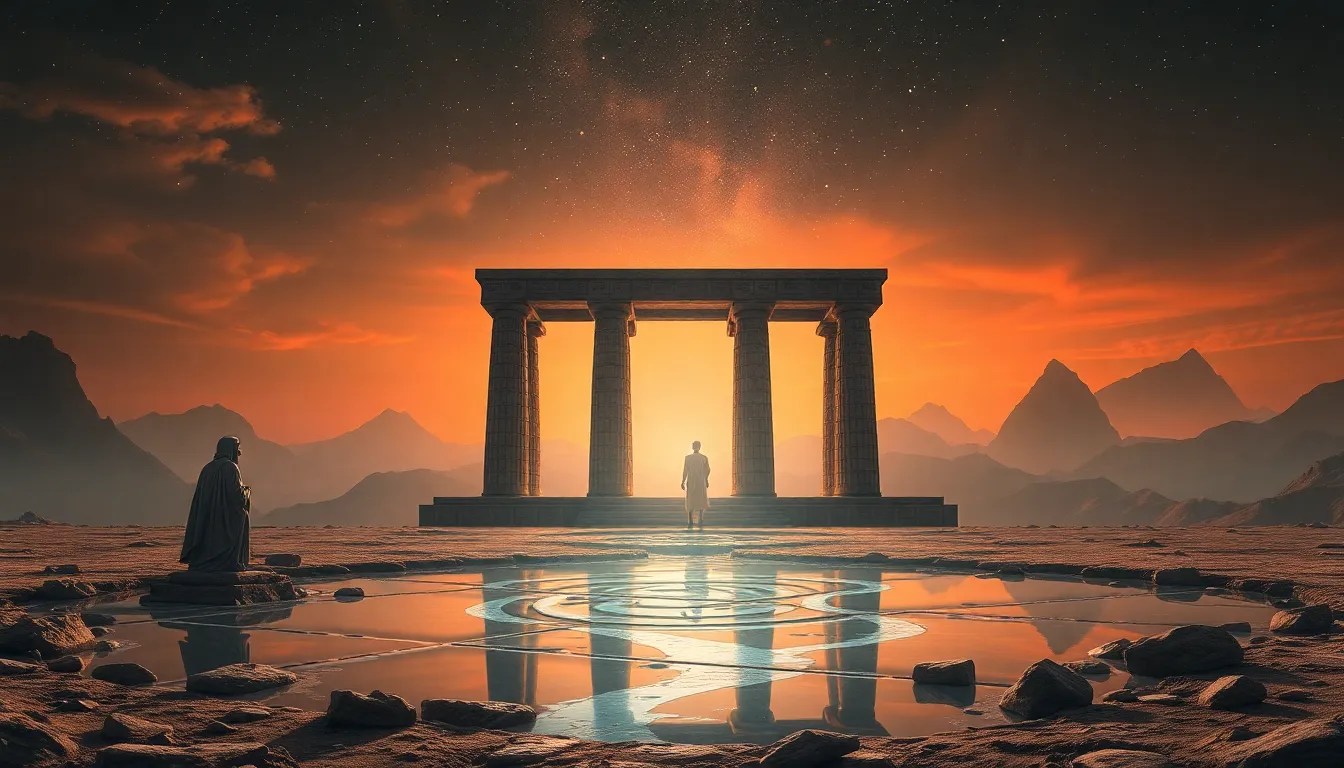Atrahasis: A Mythical Reflection on Human Nature
I. Introduction
The Atrahasis epic stands as one of the most significant narratives in Mesopotamian mythology, offering profound insights into human nature and the relationship between the divine and humanity. This ancient text, dated to the 18th century BCE, serves not only as a tale of creation and survival but also as a reflection of the complexities inherent in human existence.
This article aims to explore the themes of the Atrahasis myth, delving into the nature of humanity, the consequences of divine expectations, and the struggles faced in the quest for survival. Key themes such as creation, survival, and divine-human relationships will be examined to uncover the underlying messages about human nature.
II. The Tale of Atrahasis: A Summary
The Atrahasis epic unfolds in a world where the gods, burdened by the labor of maintaining the earth, decide to create humans to alleviate their toil. The story is rich with key characters, including Atrahasis himself, who embodies the resilience of humanity, the gods who play a pivotal role in shaping human fate, and the collective of humanity that reflects both the strengths and weaknesses of their creators.
Major events in the narrative include:
- The creation of humans from clay and the blood of a slain god.
- The growing population of humanity leading to divine displeasure.
- The catastrophic flood sent by the gods to cleanse the earth of humanity.
- Atrahasis’s survival through cleverness and divine favor.
III. The Creation of Humanity: Purpose and Flaws
The gods’ motivations for creating humans stem from a desire for relief from their burdens. Initially, humans are seen as a solution to the gods’ labor, meant to serve and worship the deities. However, this creation comes with inherent flaws:
- Strengths: Humans possess intelligence, creativity, and the ability to adapt.
- Weaknesses: They display greed, overpopulation, and a tendency to forget their creators.
The dual nature of humanity reflects the complexities of existence, where strengths can quickly turn into flaws. The implications of these flaws highlight the gap between divine expectations and human actions, leading to conflict and consequences in the narrative.
IV. The Flood Narrative: A Reflection of Human Struggles
The flood serves as a pivotal event in the Atrahasis epic, symbolizing divine displeasure due to human overpopulation and the noise they create. The gods, overwhelmed by the chaos caused by humanity, decide to cleanse the earth through a great flood.
Atrahasis emerges as the archetypal survivor, characterized by:
- Cleverness: He receives warnings from the god Enki about the impending flood.
- Resourcefulness: Atrahasis builds a boat to save himself, his family, and various animals.
The flood narrative acts as a metaphor for the existential challenges faced by humanity, reflecting themes of destruction and rebirth. It underscores the notion that survival often requires resilience and adaptability in the face of overwhelming odds.
V. Divine-Human Relationships: Power and Responsibility
The dynamic between the gods and humans in the Atrahasis epic reveals layers of power and responsibility. The gods wield immense power over humanity, yet their actions prompt questions about accountability and justice.
Themes of responsibility and accountability emerge through:
- The expectation for humans to honor and worship the gods.
- The consequences of human actions leading to divine retribution.
The concept of divine retribution is central to the myth, illustrating how human flaws can provoke the wrath of the gods, leading to catastrophic consequences. This relationship serves as a cautionary tale about the importance of respecting the balance between divine will and human agency.
VI. Human Resilience and Adaptation in the Face of Adversity
Atrahasis symbolizes human resilience and adaptability, showcasing the ability to overcome challenges posed by the divine and the natural world. His journey highlights several key lessons:
- Facing Challenges: Overcoming the threat of the flood through preparation and foresight.
- Learning from Mistakes: Understanding the consequences of human actions can lead to better choices in the future.
The broader implications for contemporary human experiences resonate with the message of resilience. In a world filled with uncertainty and adversity, the lessons learned from Atrahasis inspire individuals to adapt and persevere in the face of challenges.
VII. The Legacy of Atrahasis in Modern Context
The Atrahasis epic continues to influence contemporary understanding of human nature and morality. Its themes resonate deeply in discussions about ethics, survival, and the human condition. The relevance of the myth can be observed in various contexts:
- Flood Myths: Comparisons with other cultural flood narratives, such as the Biblical flood of Noah, reveal shared human concerns about divine judgment and survival.
- Ethical Discussions: The moral dilemmas faced by Atrahasis prompt reflections on our responsibilities to ourselves, each other, and the environment.
VIII. Conclusion
In conclusion, the Atrahasis myth offers profound insights into the complexities of human nature, emphasizing themes of creation, survival, and the intricate relationships between the divine and humanity. The story serves as a timeless reminder of the flaws and strengths inherent in the human experience.
The enduring importance of mythology, as exemplified by Atrahasis, lies in its ability to shed light on the human condition, offering valuable lessons that remain relevant to modern society. As we navigate the challenges of our own existence, the lessons of Atrahasis encourage resilience, accountability, and a deeper understanding of our place within the cosmos.



